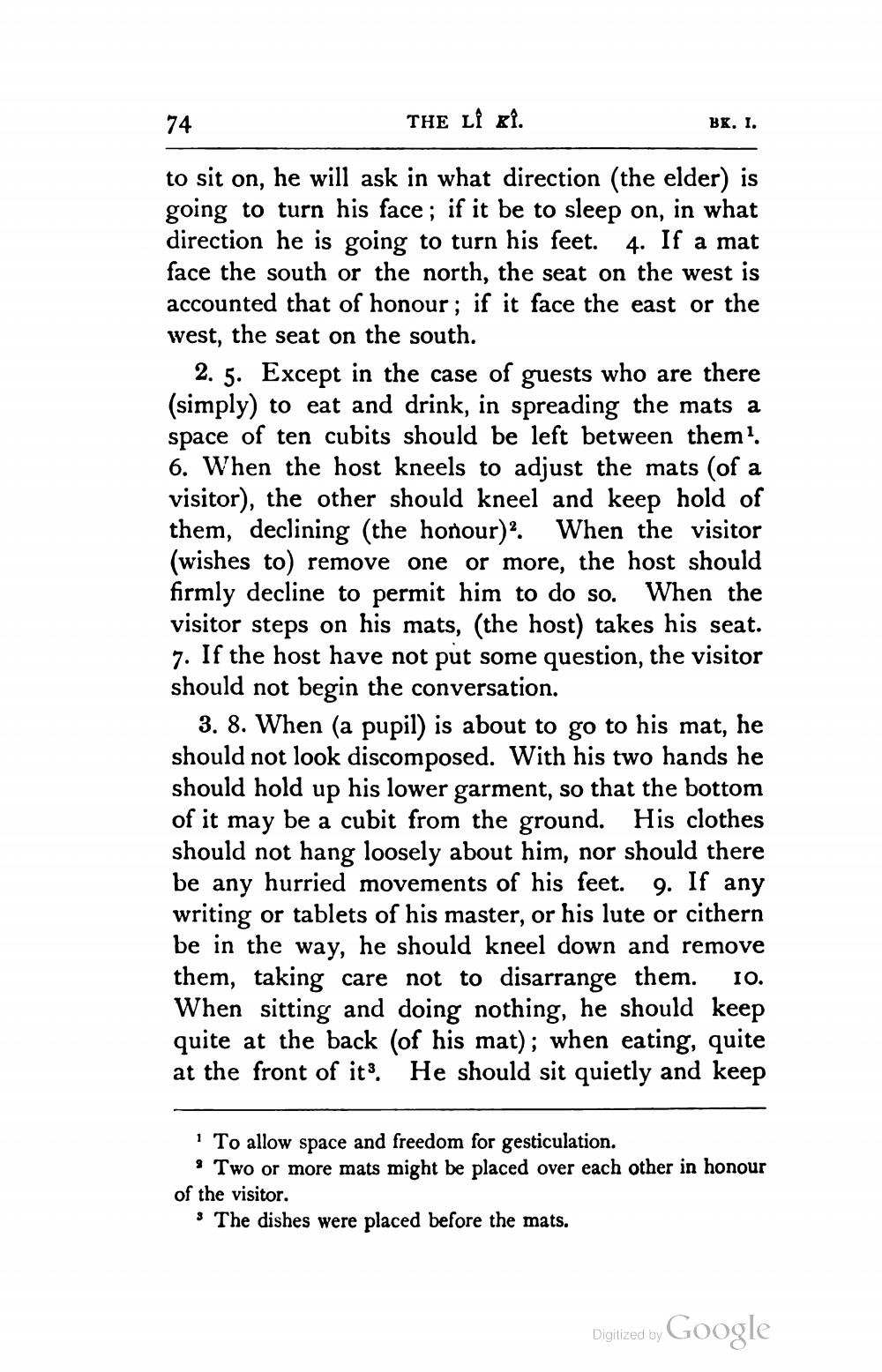________________
74
THE LÎ Ri.
BK, I.
to sit on, he will ask in what direction (the elder) is going to turn his face; if it be to sleep on, in what direction he is going to turn his feet. 4. If a mat face the south or the north, the seat on the west is accounted that of honour; if it face the east or the west, the seat on the south.
2. 5. Except in the case of guests who are there (simply) to eat and drink, in spreading the mats a space of ten cubits should be left between them'. 6. When the host kneels to adjust the mats (of a visitor), the other should kneel and keep hold of them, declining (the honour)?. When the visitor (wishes to) remove one or more, the host should firmly decline to permit him to do so. When the visitor steps on his mats, (the host) takes his seat. 7. If the host have not put some question, the visitor should not begin the conversation.
3. 8. When (a pupil) is about to go to his mat, he should not look discomposed. With his two hands he should hold up his lower garment, so that the bottom of it may be a cubit from the ground. His clothes should not hang loosely about him, nor should there be any hurried movements of his feet. 9. If any writing or tablets of his master, or his lute or cithern be in the way, he should kneel down and remove them, taking care not to disarrange them. 10. When sitting and doing nothing, he should keep quite at the back (of his mat); when eating, quite at the front of its. He should sit quietly and keep
To allow space and freedom for gesticulation. 9 Two or more mats might be placed over each other in honour of the visitor.
* The dishes were placed before the mats.
Digitized by Google




